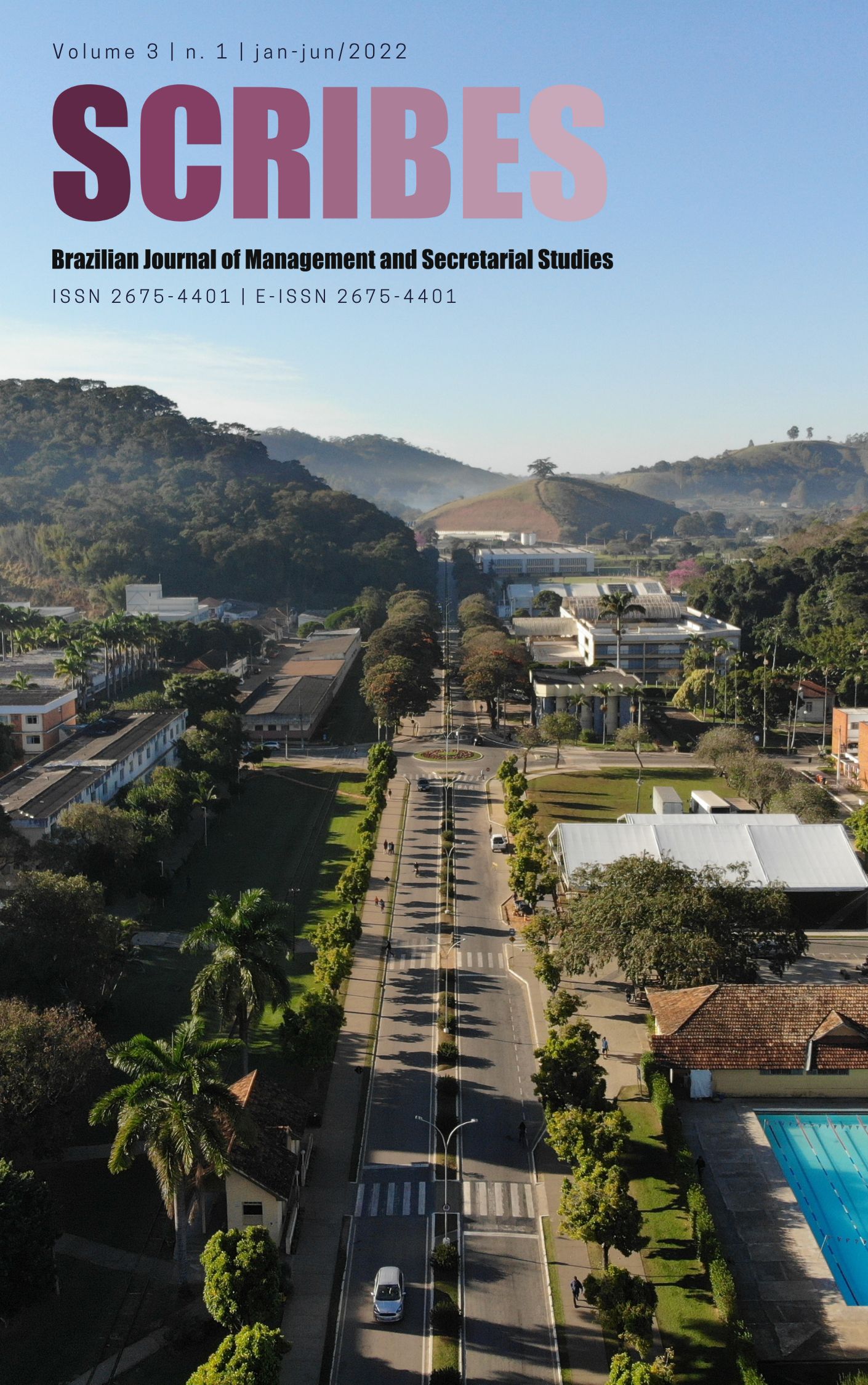The Managerial Competences of the Executive Secretariat in relation to People Management
DOI:
https://doi.org/10.33228/scribes.2022.v1.13512Abstract
Due to developments in the business world and significant changes in the profile of the Executive Secretary, this professional started acting as a manager and, more specifically, in people management. Based on this perspective, this research aimed to verify whether the secretarial skills developed during the training supports the possibility of acting as a people manager. To achieve this purpose, through bibliographic and documental strategies. Based on secondary data from books and papers from scientific journals, investigated in scientific databases, and after assessing the competences of both professions, content analysis was performed, which was characterized in the construction of a comparative table to verify the similarities of competences. As a result, it was confirmed that the skills of the professional secretariat manager support the possibility of their performance, including in people management.
Downloads
Downloads
Published
How to Cite
Issue
Section
License
Published authors agree on the following items:
a. Authors keep copyright ownership whilst ceding to SCRIBES the right to a first publication. The material is also simultaneously licensed under the Creative Commons Attribution-NonCommercial 3.0 Unported Licence, which allows its publication with mutual recognition of authorship and initial publication through SCRIBES.
b. Authors are authorised to engage in third-party contracts independently, as long as they are pursuing a non-exclusive publication of the article originally published in this journal, such as having it appended to an institutional repository or included in a book as a chapter. Authorship and original publication by SCRIBES must still be acknowledged.
c. Authors have permission to and are encouraged to publish their research online, such as in institutional repositories or in their own personal web pages. They are allowed to do that before or after the editorial process, once it inspires any opportunistic alterations to be considered during the aforementioned process, and increase the content’s impact and value as a quotable work (read more on The Effect of Free Access).




